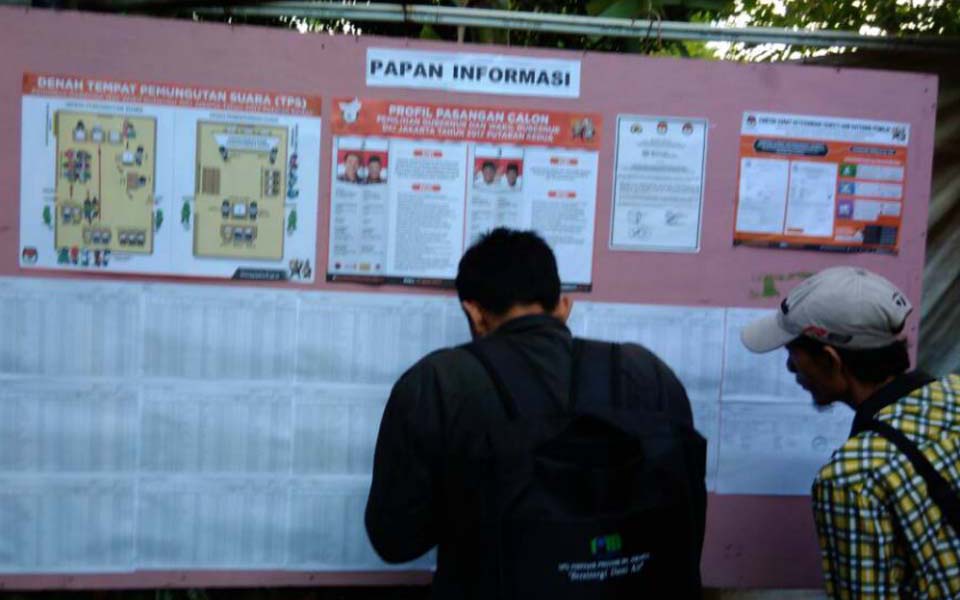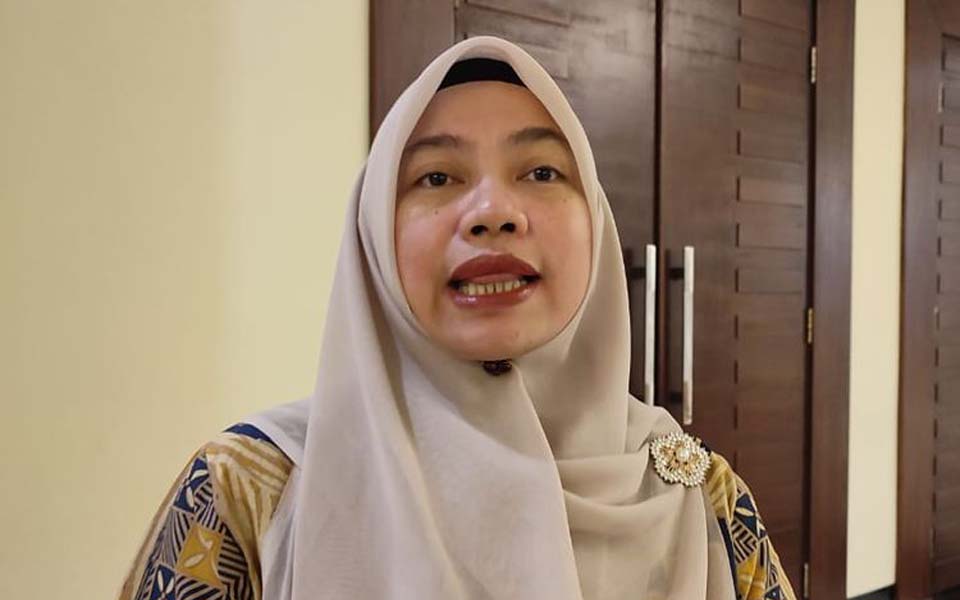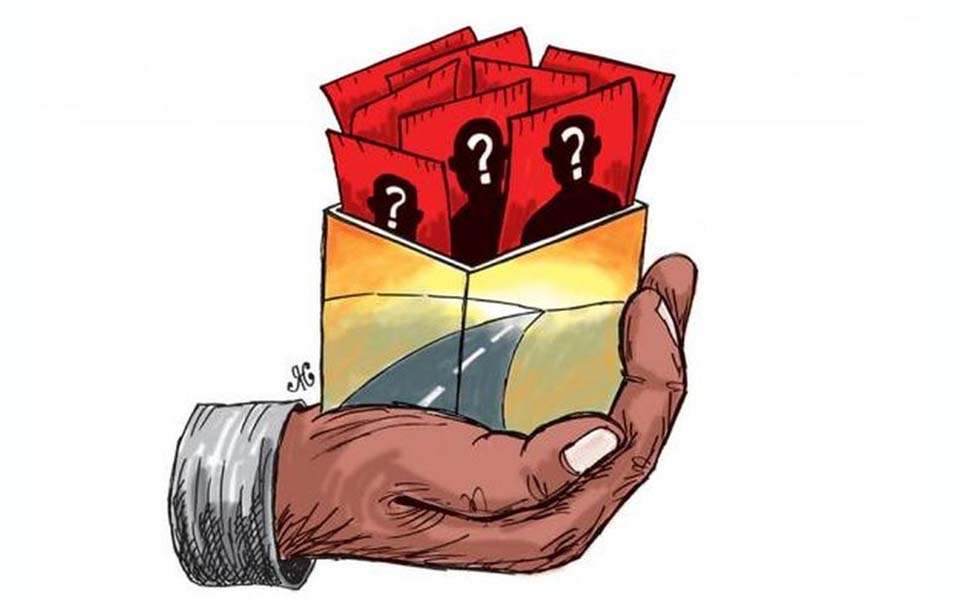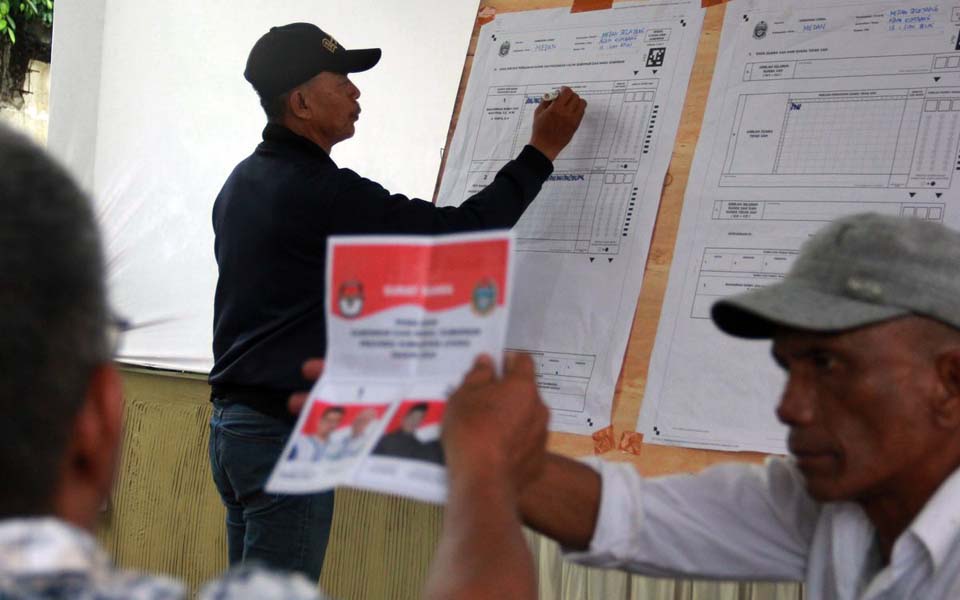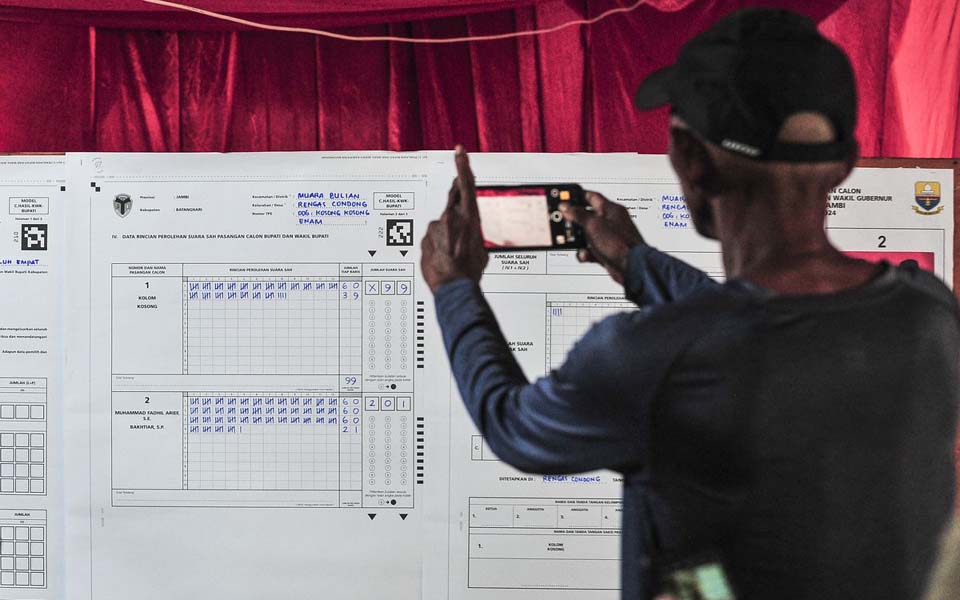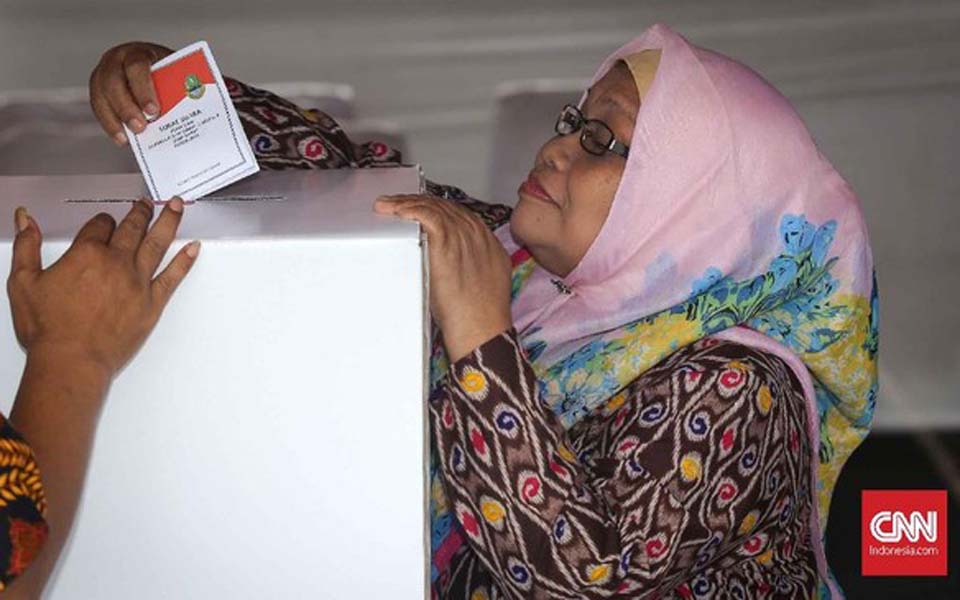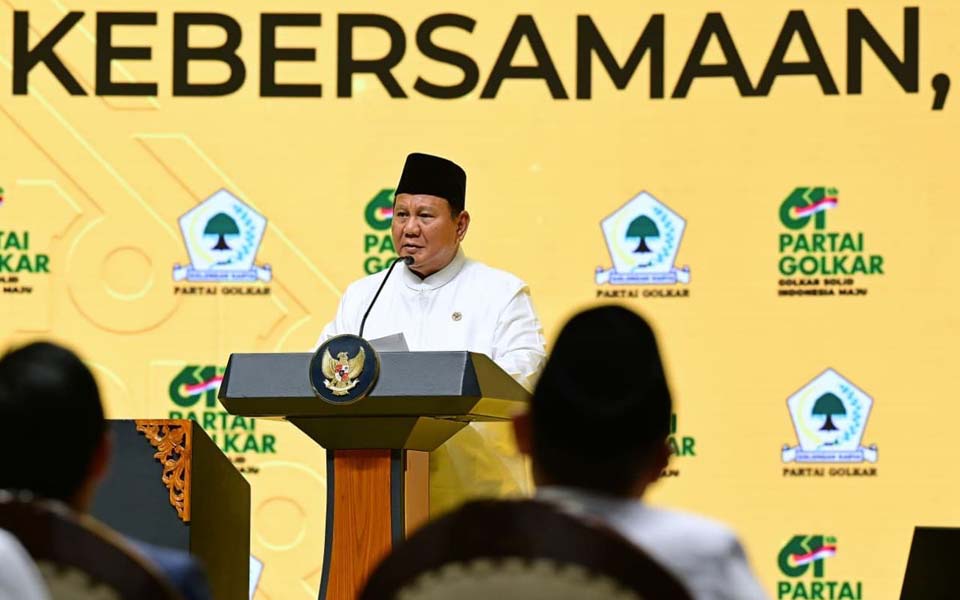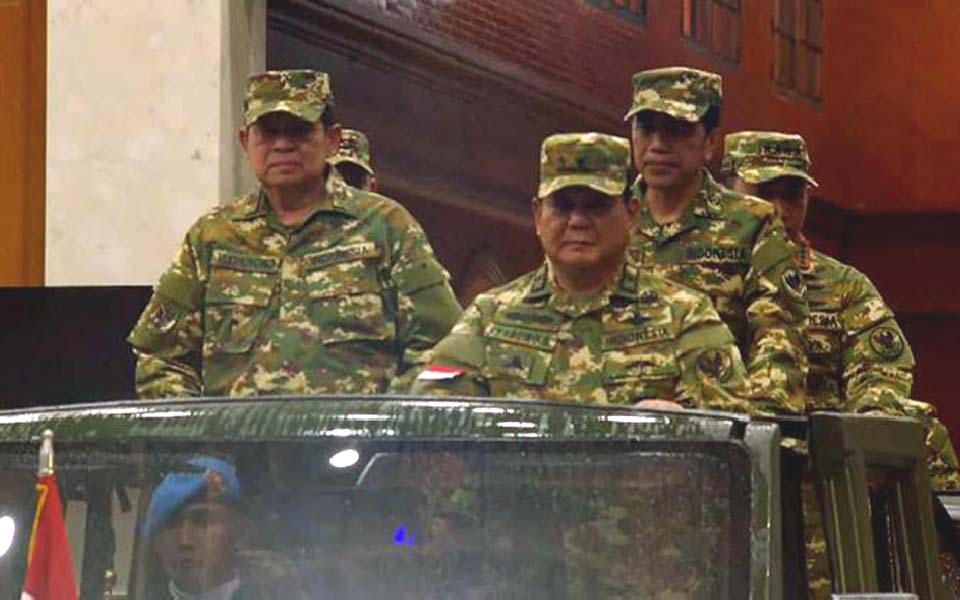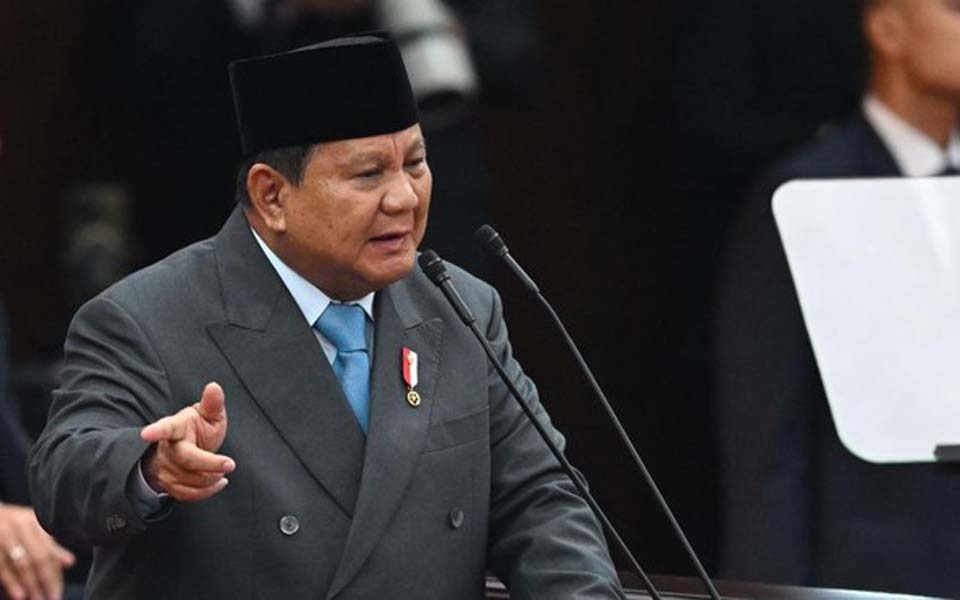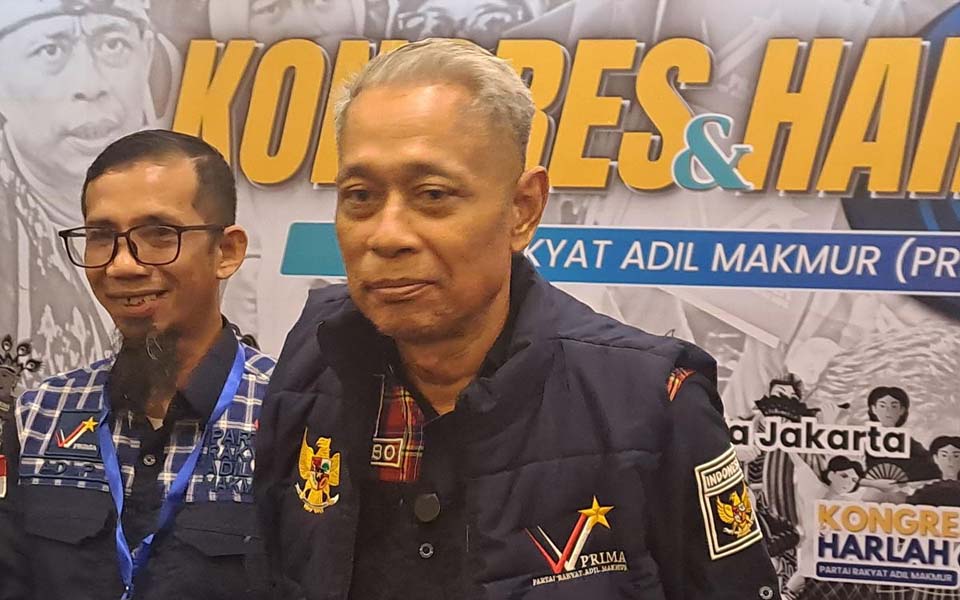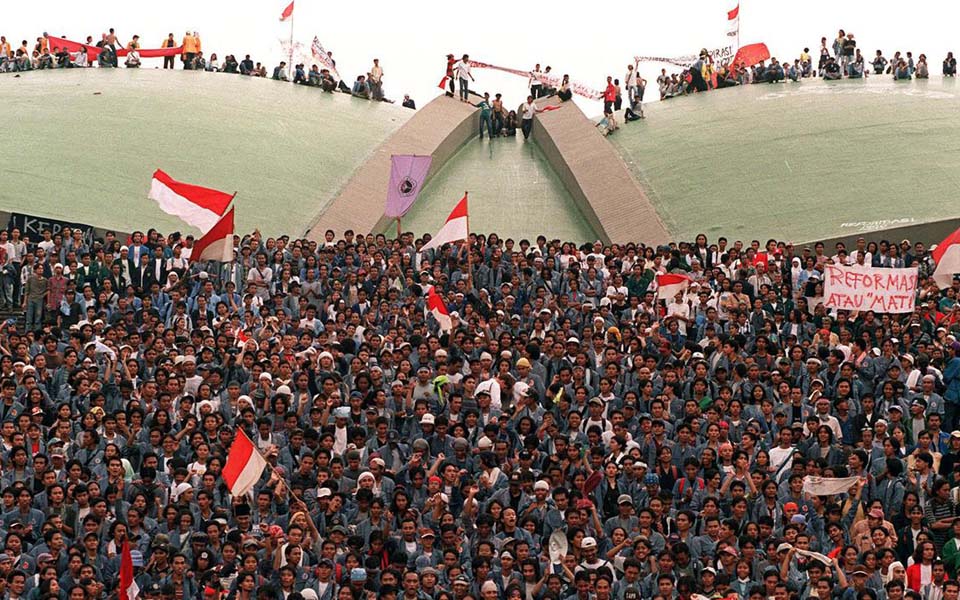Suwardiman – “The facts indicated that up until now many political parties have not really taken up the aspirations of the people. The parties have only become a means for a small group of people to take power. We have merely been turned into spectators that witness their ‘attractions’ without touching on the real problems confronted by ordinary people. How can we trust them?”.
Such was a comment by Indri (43), a respondent from the North Sumatra provincial capital of Medan who was contacted by Kompas on November 8 during a survey that was held between November 7-8. Indri’s comment was representative of 79.3 percent of respondents out of a total of 837 netted in this survey, who were disappointed with the performance of the political parties that exist at the moment.
As many as 76.1 percent of respondents believe that up until now the existing political parties have yet to demonstrate their ability as an institution to represent the interests of the majority of ordinary people. Eight out of 10 respondents believe that the political parties at the moment largely exist just to articulate the interests of the political parties and the elite.
This experience appears to have made the public feel apathetic towards the new political parties that have recently registered themselves with the Department of Justice and Human Rights to participate in contesting the 2009 general elections.
Role of the parties
Theoretically, political parties represent the primary pillar and at the same time the spirit of the democratic process. As a political institution they are an important instrument in a modern political systems. Among other things, political parties play a role as an instrument of political education for society, a channel for the political wishes of the people, an instrument of political participation for citizens and a political recruitment channel in the process of filling public positions.
Put simply, political parties are born to become an intermediary or mediator between the people and the government.
Unfortunately, in Indonesia the modernisation of the political system has not been accompanied with significant changes to the political culture. The system and political institutions that now provide more space turn out to mostly be used as a faucet of corruption.
The public is also fed up with the parties only playing an aggressive role in the lead up to the elections. After the ‘festival of democracy’ is over, no attention is paid to the ordinary people and they are left to go back to confronting their own problems, and by themselves.
It is because of this therefore, that when asked about the performance of the political parties, the majority of respondents said they were disappointed because the parties mostly exist to advance institutionalised interests and the interests of those in power, prioritising the interests of the political elite and the owners of capital that stand behind them.
Just to mention a few examples, what about the antics by the political elite in formulating a solution to the Lapindo mud disaster. For more than half-a-year the people of Porong, Sidoarjo, East Java, has been suffering from the prolonged impact of the Lapindo mudflow.
The failure of the interpellation motion that was presented by the House of Representatives (DPR) appears to have further convinced the people that the political party elite in the parliament is not serious about siding with their interests.
Not to mention the various corruption cases, quite a number of which have involved party leaders occupying seats in the DPR. One of these was the case involving funds from Bank Indonesia, some 31.5 billion of which ended up in the pockets of assembly members.
The revelations in this case appear to have added to the festering ulcer of political party members to whom the voters have given their trust. Finally, the hope that the political party representatives in the DPR would be aroused into action by the acute traffic congestion in Jakarta, also appears not to have been the case.
So, it is not surprising then if the majority of the public feels apathetic towards the work of political party leaders at present. In the eyes of respondents, the political party elite has been coopted by the interests of power and the owners of capital.
As many as 45.3 percent of respondents believe that after they are elected, the political party figures prioritise their own interests, while 44.1 percent said that these figures mostly tend to voice the interests of their parties.
New political parties
In 2004, 24 political parties were registered to contest legislative seats and 16 parties succeeded in winning a seat in the DPR.
The three parties that have succeeded in dominating the DPR through having the largest number of seats are still the big and established parties, the Golkar Party (127 seats), the Indonesian Democratic Party of Struggle (109 seats) and the United Development Party (58 seats). The Democrat Party as a new party who contested the elections for the first time in 2004 is in fourth place controlling 56 seats.
It appears that the public likes the idea of less political parties being involved in the elections. At least that was the opinion 83.6 percent of respondents in this survey. The majority of the pubic (80.8 percent of respondents) believe that too many parties participated in the elections three years ago. The ideal number of parties contesting the elections – according to 45 percent of respondents – is three to five parties. Meanwhile according to 32.2 percent of respondents, the ideal number would be between six to 10.
So far, 79 new political parties have registered and are taking up a diverse range of ideologies and interests.
Out of the 71 parties that have submitted their statues and rules of association to the Department of Justice and Human Rights, as few as eight are recorded as having a religious basis. And the names and identities of quite a few resemble each other.
The public’s appreciation of the emergence of new political parties is extremely low. Almost 90 percent of respondents said that they did not know or did not believe that there were any new political parties that would attract their vote. Public apathy towards the emergence of new political parties may well be rooted in their disappointment over the performance of the political parties that exist at the moment.
This disappointment manifests itself in public dissatisfaction with the performance of the elite parties that currently sit in the DPR who represent regional electorates. This can be read from the views of 73.6 percent of respondents that are unconvinced that these new parties will be able to struggle for their interests.
The majority of the public (73.2 percent) is of the view that there is no need for new parties to be formed to greet the 2009 general elections. It is for this reason also that the majority of the public agree that the requirements for establishing a political party be made harder than the requirements that are currently in force as embodied in Law Number 31/2002 on Political Parties.
Proposed amendments are also being mulled over by the DPR in the deliberations on the draft packet of political laws, with proposals that a number of rules on the establishment of a party be tightened up. Included among these is a proposal that required the number of founding members needed to establish a party, which currently stands at 50, be increased to between 100 to 250 people.
The other proposed amendment is that on the number of management boards, which currently requires that a party have branch offices in a minimum of 50 percent of the provinces, be increased to 75 percent. It has also been proposed that the electoral threshold of 3 percent of seats in the DPR be increased to 5.
The unfinished deliberations on the draft political laws are the reason that the Department of Justice and Human Rights has postponed the verification of the parties that have already registered. Based on investigations by Kompas Research and Development, the addresses and identify of a number of the new political parties that have registered is unclear. Several of the registered addresses and phone numbers were also unable to be contacted. (Kompas Research and Development)
[Translated by James Balowski.]





